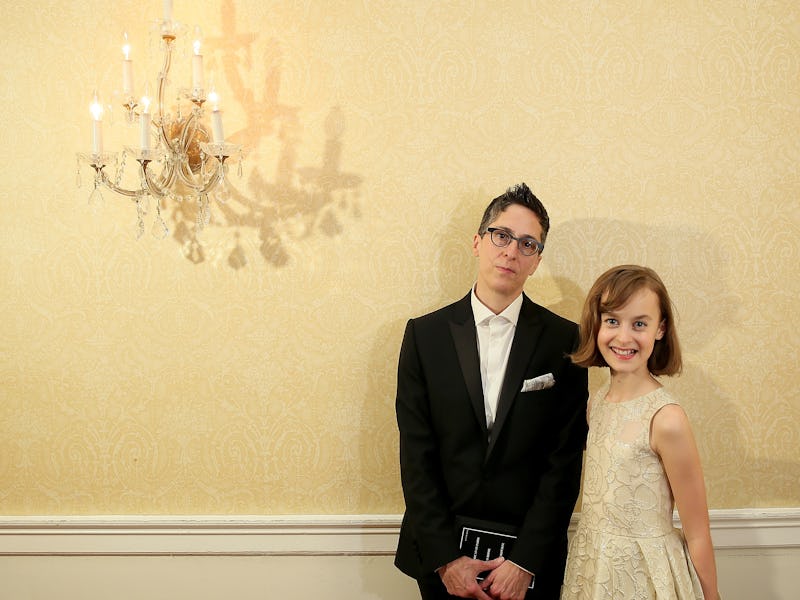Duke Freshmen Are Revolting Against Alison Bechdel's Memoir 'Fun Home'
When freaking out over summer-reading graphic novels become a teaching moment.

Alison Bechdel is a pioneering figure who has recieved a MacArthur Genius grant, coined one of the most important terms in modern pop culture — the Bechdel Test — and written a critically acclaimed graphic novel that has been adapted into an award winning Broadway play. To those accomplishments she may now add this unlikely ability: the magical powers to corrupt America’s impressionable youngsters.
Duke University selected Bechdel’s Fun Home, her graphic memoir about her tumultuous relationship with her father and their simultaneous struggles with their sexual identities, among its required summer reading for incoming freshmen. Some students were no doubt chuffed. Others are reacting as if they were told to read and defend Mein Kampf.
The Duke Chronicle reported that an incoming freshman posted an anti-Fun Home treatise on the class Facebook page that read, in part, “I feel as if I would have to compromise my personal Christian moral beliefs to read it.” Another distressed incoming freshmen told the Chronicle, in the paper’s words, that she “could not bring herself to view the images depicting nudity.”
Where to begin here? First, kudos to these freshmen: It sounds as if they stand to benefit greatly from a liberal arts education, considering such a mild affront to their upbringing amounts to a shock to their systems. But they should reconsider the decision to shun Fun Home on grounds other than summertime laziness. Religious morals that a graphic novel can undermine are, by definition, flimsier than wet bread. And I’m sorry to have to break it to you, Dookies, but you’re going to have a rough four years if you can’t bring yourself to look at naked people. They’re everywhere in college. Seriously. Everywhere. They’re on slides in your art history classes. They’re in your class readings for many subjects (biology, history, English, to name a few). They’re wandering around your dorms. They’re streaking your exams or across your quad. They’re performing your plays. And, rumor has it, they might even be looking at you from a mirror when you shower. You know what else they’re in? Check out this passage:
She lusted after her lovers, whose genitals were like those of donkeys and whose emission was like that of horses.
Craving donkey-dick ejaculate is some kinky shit — surely that’s from a depraved volume like Fun Home or some other latter-day smut, right? Nope, it’s from the Good Book itself, the one you say prevents you from reading a graphic novel about a real person’s tricky-ass life.
Students refusing to engage with books that clash with their worldview defeats the very purpose of college. Yet it’s becoming an increasing problem across college campuses, to the point where famous comedians have spoken out about their decision to bypass colleges on their tours.
It’s ironic, or perhaps fitting, that these kids decided to take a stand against Bechdel. Her most enduring cultural creation has to do with bringing our attention to silenced voices. The Bechdel Test stipulates that, to pass, a movie must have a scene of two women talking about something other than a man. It seems laughably simple — surely films don’t ignore half the population, right? — yet so many movies fail it.
Historically speaking, silencing voices doesn’t work well. If anything, attempts to quash books in America usually backfire. Put it this way: When school boards and censorious parents raise a furor over Slaughterhouse-Five or Catcher in the Rye or, hell, Persepolis, do you think kids become less interested in reading them? Or, in the age of Amazon, do you expect that denouncing a book for sexuality or drug use or other difficult, “adult” themes makes a book more enticing to the sort of young people who themselves want to become adults?
If in fact, as I suspect, it’s the latter, I’d like to thank timid, narrow-minded Duke freshman for giving Fun Home the “read this now!” censorship stamp. The book should be read, now. It’s the wrong side of history, to shun the voice of a woman who became famous for talking about silencing women’s voices.